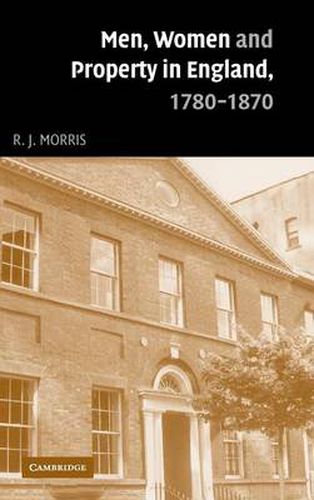Readings Newsletter
Become a Readings Member to make your shopping experience even easier.
Sign in or sign up for free!
You’re not far away from qualifying for FREE standard shipping within Australia
You’ve qualified for FREE standard shipping within Australia
The cart is loading…






This is an innovative study of middle class behaviour and property relations in English towns in Georgian and Victorian Britain. Through the lens of wills, family papers, property deeds, account books and letters, the author offers a new reading of the ways in which middle class families survived and surmounted the economic difficulties of early industrial society. He argues that these were essentially ‘networked’ families created and affirmed by a ‘gift’ networks of material goods, finance, services and support with property very much at the centre of middle class survival strategies. His approach combines microhistorical studies of individual families with a broader analysis of the national and even international networks within which these families operated. The result is a significant contribution to the history of the middle classes, to economic, business, urban and gender history, and to debates about the place of structural and cultural analysis in historical understanding.
$9.00 standard shipping within Australia
FREE standard shipping within Australia for orders over $100.00
Express & International shipping calculated at checkout
This is an innovative study of middle class behaviour and property relations in English towns in Georgian and Victorian Britain. Through the lens of wills, family papers, property deeds, account books and letters, the author offers a new reading of the ways in which middle class families survived and surmounted the economic difficulties of early industrial society. He argues that these were essentially ‘networked’ families created and affirmed by a ‘gift’ networks of material goods, finance, services and support with property very much at the centre of middle class survival strategies. His approach combines microhistorical studies of individual families with a broader analysis of the national and even international networks within which these families operated. The result is a significant contribution to the history of the middle classes, to economic, business, urban and gender history, and to debates about the place of structural and cultural analysis in historical understanding.